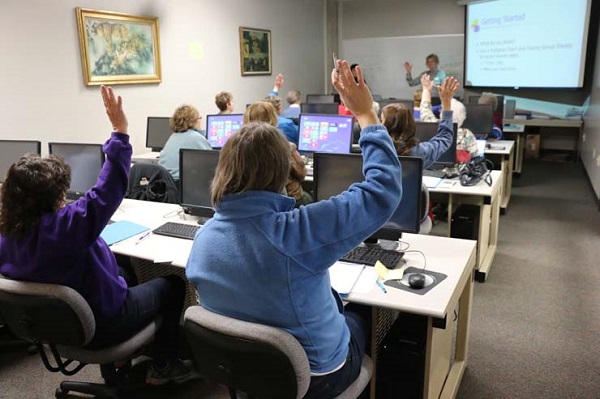1 What do we mean by participation in educational settings?

 Reflection
Reflection
What does ‘participation’ mean to you as a learner and as an educator?
What does participation mean to you?
| What does participation mean to you as a learner? | What does participation mean to you as an educator? |
|---|---|
![]() You can also do this reflective task in your learning journal or with a pen and paper. Write the word ‘participation’ in the middle of a page and use two different coloured pens to write down and collect your thoughts.
You can also do this reflective task in your learning journal or with a pen and paper. Write the word ‘participation’ in the middle of a page and use two different coloured pens to write down and collect your thoughts.
Look for commonalities and differences between the two. Use the image to help you consider the different perspectives.
In your reflections as a learner, you may have considered words and phrases like:
- having a voice
- democracy
- working with others
- feeling heard.
As an educator, you may have included:
- engagement/taking part
- community
- motivation.
You may have also had some crossover between the two points of view, for things like:
- agency in learning
- feedback.
In this section you’ll explore many of these areas and how they relate to participation, remembering it is important to consider the value of participation, not only from your view as the educator – guided as that will be towards your aims, values and understandings – but also from the view of the learners.
The concept of participation has a long history within education, straddling different theoretical and research traditions (Carpentier et al., 2019). From a sociological position the word participation is focused on ‘taking part’ as an active process of learning. Here the emphasis is on individuals contributing, where knowledge is ‘made’ through processes of (mainly verbal) interactions (Piaget, 1971; Vygotsky, 1978). This has led to a rise in learner-centred group work, where being actively in discussion with others is a valued form of participation to deepen understanding.
Another strand of participation in education arises from ancient Greek philosophies of democracy, emphasising education’s role in developing learners into public as well as private citizens (Carpentier et al., 2019). In this democratic view of participation, the focus is on agency, representation and power sharing, and has strongly influenced the rise of citizenship education (Davies and Chong, 2016) and the ‘rights’ agenda (UNICEF, 1989).
This plurality of meanings and intentions can be seen in the debates around participation as a sustainable pedagogy. However, as noted by Rautio et al. (2022), across all forms of participation in education some ‘hidden’ questions need to be surfaced which are particularly important when thinking about sustainable pedagogies:
- Participation for whose benefit?
- Participation on whose terms?
To which we could also add:
- Participation as pedagogical processes of what?
- Participation in/across/between what spaces?
Central to these questions are issues of:
- Whether participation (particularly in education settings) is used as a technicist ‘tool’ to meet expected and planned for outcomes (where it could lead to a homogenisation of views or experiences, with a focus on individualised outcomes or learning, and where dominating positions are restated).
- How far participatory pedagogies can lead to authentic difference making, change, or transformative practices?
- In simplified terms, does participation lead to more of the same for our environment and society, or something actively different?
Unit 3 learning outcomes
